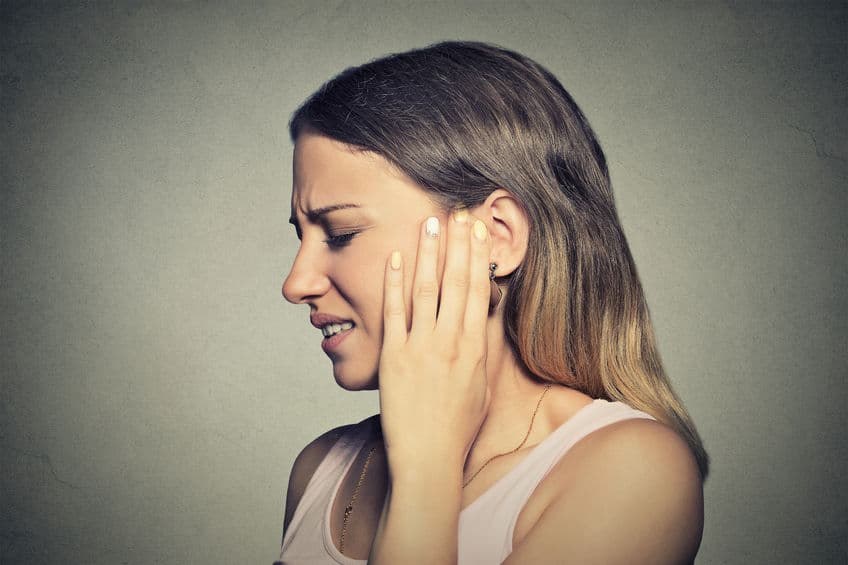
According to the National Institute on Deafness and Other Communication Disorders (NIDCD), approximately 615,000 people in the United States are currently diagnosed with Meniere’s disease, and 45,500 cases are newly diagnosed each year. So, what is Meniere’s disease and why are so many Americans suffering from it?
What is Meniere’s Disease?
Meniere’s disease is a disorder of the inner ear that can cause dizziness, ringing in the ear, and hearing loss, among other symptoms. Although Meniere’s disease usually only affects one ear, the symptoms can be debilitating.
Meniere’s disease can develop at any age, but most new cases are diagnosed in adults between the ages of 40 to 60 years.
Symptoms of Meniere’s Disease
Symptoms of Meniere’s disease can come on suddenly and vary from person to person. They are often referred to as an “attack.” The most common symptoms include the following:
Tinnitus
Tinnitus is characterized by a persistent ringing, buzzing, or hissing sound in the ear.
Vertigo
An attack of vertigo can cause an individual to suddenly become dizzy or have a spinning sensation. Episodes of vertigo start and stop spontaneously and without warning. They can last 20 minutes, to several hours, but usually not more than 24 hours. Severe vertigo can cause nausea and vomiting.
Hearing Loss
Hearing loss in Meniere’s disease can come and go, particularly in the early stages of the disease. Eventually, however, most people develop some form of permanent hearing loss.
Feelings of Fullness in the Ear
People with Meniere’s disease often report a feeling of pressure in the affected ear or on the side of their heads.
Causes of Meniere’s Disease
Although many theories exist about the causes of Meniere’s disease, no definite answers are available. Some scientists believe that Meniere’s disease is the result of blood vessels constricting, similar to the cause of migraine headaches. Others think that Meniere’s disease could be the result of allergies, autoimmune reactions, or viral infections. It could also be the result of genetic variations, as Meniere’s disease appears to run in families.
Treatments Options for Meniere’s Disease
Unfortunately, no cure exists for Meniere’s Disease at this time. However, treatments are available to help shorten the duration of the attack, or cope with the symptoms.
Medications
Medications may be prescribed to relieve the dizziness, which is often the most disabling symptom of a Meniere’s disease attack. Prescription drugs such as meclizine, diazepam, glycopyrrolate, and lorazepam can help relieve dizziness and shorten the attack.
Dietary or Behavioral Changes
Limiting salt intake and taking diuretics may help control dizziness by reducing the amount of fluid the body retains, which may help lower fluid volume and pressure in the inner ear. In addition, some people report that caffeine, chocolate, and alcohol exasperate their symptoms and make them worse, so they are avoided. Not smoking may also help lessen the symptoms.
Cognitive Therapy
Some people find that cognitive therapy, or talk therapy, helps them better cope with the unexpected attacks and reduces anxiety about future attacks.
Injections
Some doctors inject the antibiotic gentamicin in to the middle ear to help control vertigo. However, this significantly raises the risk of hearing loss because it can damage the hair cells in the inner ear. A doctor may inject a corticosteroid instead, which can help reduce dizziness without the risk of hearing loss.
Surgery
Surgery may be recommended when all other treatments have failed, and the symptoms are prevalent and frequent. The endolymphatic sac may be decompressed through a surgical procedure.
What to Do if You Have Meniere’s Disease
If you think you might have Meniere’s Disease, the first step is to talk with your audiologist. At Whisper Hearing Centers, our audiologists skilled and knowledgeable about the symptoms and treatment of Meniere’s disease and other ear and hearing disorders.
If you still have questions or want to schedule an appointment, contact the audiologists at Whisper Hearing Centers now. Your hearing health is our priority, and we are eager to hear from you! Connect with us on Facebook, submit this online contact form, or give us a call today at (317)865-2337.
